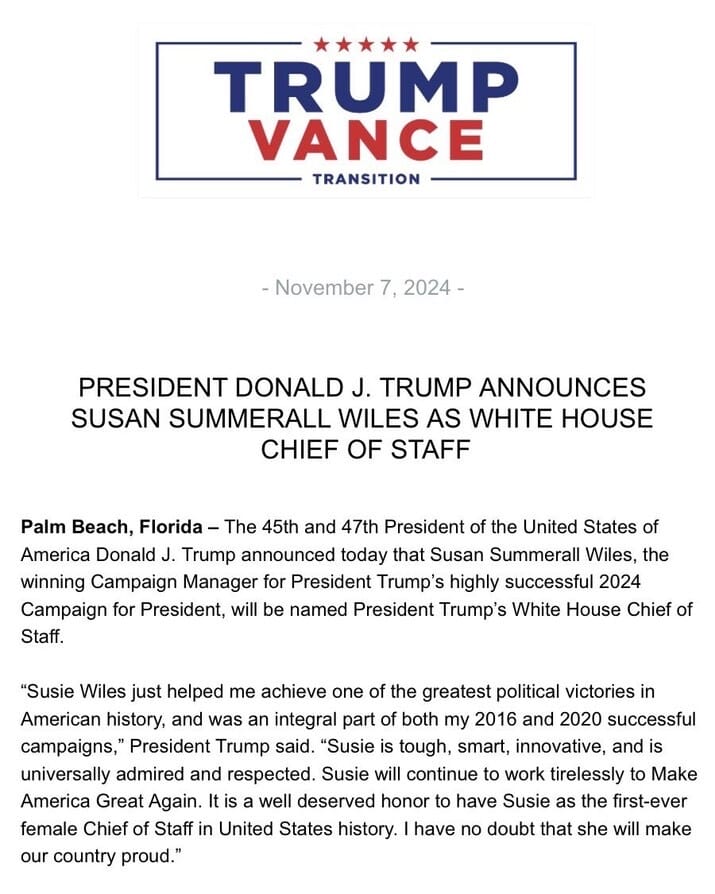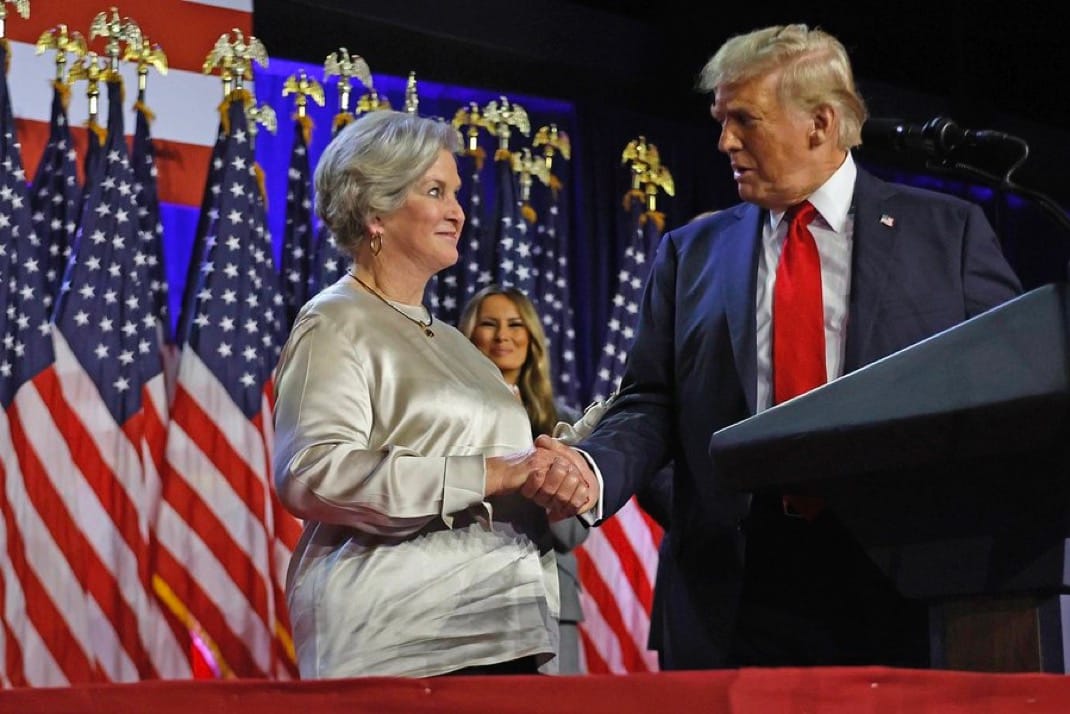Trump Names Susie Wiles as First-Ever Female White House Chief of Staff
In a historic move, President-elect Donald Trump has named Susie Wiles as his White House Chief of Staff, marking the first time a woman will hold this pivotal position in American politics. This announcement was made on November 7, 2024, following Trump's victory in the presidential election. Susie
In a historic move, President-elect Donald Trump has named Susie Wiles as his White House Chief of Staff, marking the first time a woman will hold this pivotal position in American politics. This announcement was made on November 7, 2024, following Trump's victory in the presidential election.
Susie Wiles, known for her strategic acumen and low-key yet commanding presence, has been a central figure in Trump's political operations for years. Wiles first joined Trump's orbit during his 2016 campaign, where she played a significant role in securing Florida, a state pivotal to his victory. She continued her association with Trump through his 2020 campaign and into his 2024 run, where she served as the co-campaign manager alongside Chris LaCivita.

Trump praised Wiles extensively in his statement, calling her "tough, smart, innovative, and universally admired and respected." He expressed his confidence in her ability to lead the White House staff and continue the work of his administration to "Make America Great Again."
Wiles' appointment has stirred discussions within political circles for several reasons. Not only does she become the first female White House Chief of Staff, but her appointment also reflects Trump's trust in her capability to manage the complex dynamics of the White House staff, known for its high turnover and intense political maneuvering under previous Trump administrations.
Her career in politics spans decades, starting from her early days as a scheduler for Ronald Reagan's 1980 campaign, moving through roles in Florida politics, and eventually becoming an integral part of Trump's campaign machinery. Wiles has been described by those who know her as a political savant with an exceptional ability to navigate and influence political landscapes discreetly.
The choice of Wiles over other rumored candidates like Brooke Rollins, a former top White House aide, and Kevin McCarthy, the former House Majority Leader, indicates Trump's preference for loyalty and proven track record in campaign management. This decision has been met with optimism from Trump's allies, who see in Wiles a leader capable of maintaining order and discipline within the White House.
Political analysts have pointed out that Wiles' approach might bring a new dynamic to the chief of staff role, potentially focusing on streamlining access to the president, which has been a point of contention in previous administrations. Her tenure could be key in how Trump's second term unfolds, especially in managing the relationship between the White House and Congress, as well as in executing the legislative agenda.
As Trump prepares for his second term, the appointment of Susie Wiles has already sparked a range of reactions, from celebration among those who admire her political prowess to skepticism about how her style will adapt to the high-stakes environment of Washington D.C. However, her appointment undeniably marks a significant milestone in the history of American presidential administrations.
This story continues to develop as Wiles prepares to take on one of the most challenging roles in U.S. politics, setting the stage for what could be a transformative period in the Trump administration.




